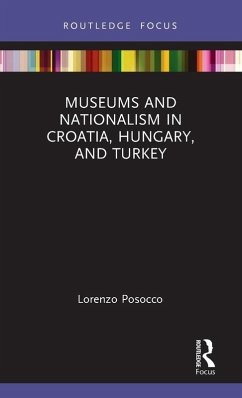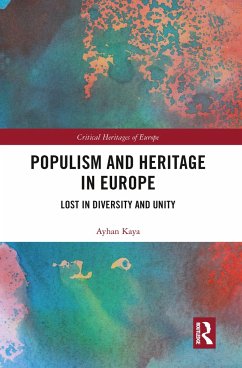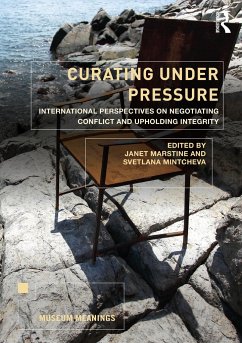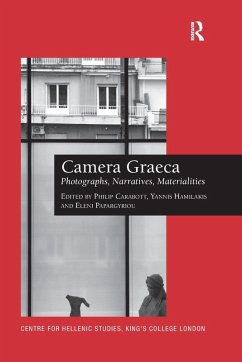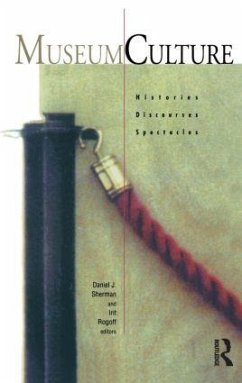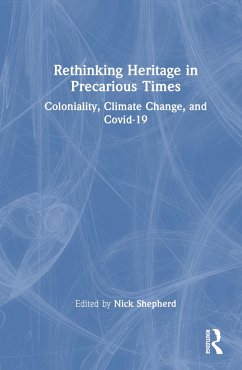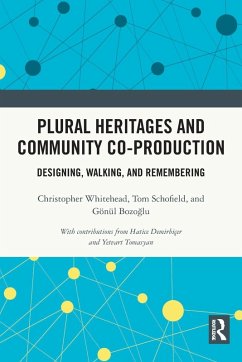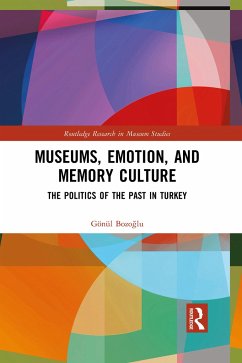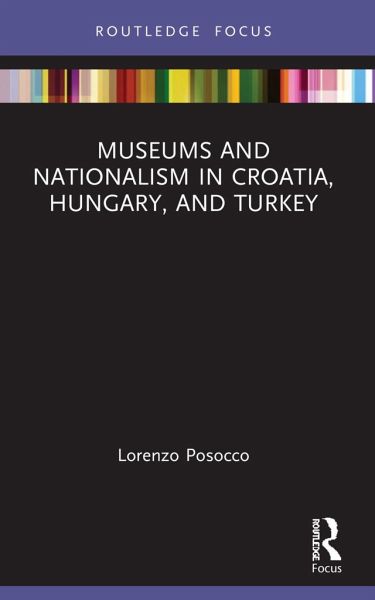
Museums and Nationalism in Croatia, Hungary, and Turkey
Versandkostenfrei!
Versandfertig in 6-10 Tagen
24,99 €
inkl. MwSt.
Weitere Ausgaben:

PAYBACK Punkte
12 °P sammeln!
Museums and Nationalism in Croatia, Hungary, and Turkey draws attention to museums as political productions of the nation-state and shows how they can be shaped by the political forces that rule a country.Drawing on case studies and interviews from Croatia, Hungary, and Turkey, the book investigates how the past has been exploited to serve the interests of nationalism in the twenty-first century, and how museums themselves are exploited to serve nationalist ideologies. Posocco argues that, in a world of nation-states where nationalism is the dominant ideology, all museums are national museums,...
Museums and Nationalism in Croatia, Hungary, and Turkey draws attention to museums as political productions of the nation-state and shows how they can be shaped by the political forces that rule a country.
Drawing on case studies and interviews from Croatia, Hungary, and Turkey, the book investigates how the past has been exploited to serve the interests of nationalism in the twenty-first century, and how museums themselves are exploited to serve nationalist ideologies. Posocco argues that, in a world of nation-states where nationalism is the dominant ideology, all museums are national museums, even when they aren't. In this perspective, they can (and do, in the case studies under analysis in this book) become the cultural offshoots of political wars, places where the national past is contested, rewritten, and sometimes even created from scratch, and finally exhibited. Paying particular attention to the decision-making and economic aspects of the museum, the book also examines the micro-sociological and political aspects, which will be the foundation for further reflections on the macro dynamics of museum-making in other countries and contexts
Museums and Nationalism in Croatia, Hungary, and Turkey provides rare and interesting insights into how museums materialise culture in the service of nationalism. The book will be of interest to those engaged in the study of museums, heritage, nationalism, memory and politics, as a result.
Drawing on case studies and interviews from Croatia, Hungary, and Turkey, the book investigates how the past has been exploited to serve the interests of nationalism in the twenty-first century, and how museums themselves are exploited to serve nationalist ideologies. Posocco argues that, in a world of nation-states where nationalism is the dominant ideology, all museums are national museums, even when they aren't. In this perspective, they can (and do, in the case studies under analysis in this book) become the cultural offshoots of political wars, places where the national past is contested, rewritten, and sometimes even created from scratch, and finally exhibited. Paying particular attention to the decision-making and economic aspects of the museum, the book also examines the micro-sociological and political aspects, which will be the foundation for further reflections on the macro dynamics of museum-making in other countries and contexts
Museums and Nationalism in Croatia, Hungary, and Turkey provides rare and interesting insights into how museums materialise culture in the service of nationalism. The book will be of interest to those engaged in the study of museums, heritage, nationalism, memory and politics, as a result.





